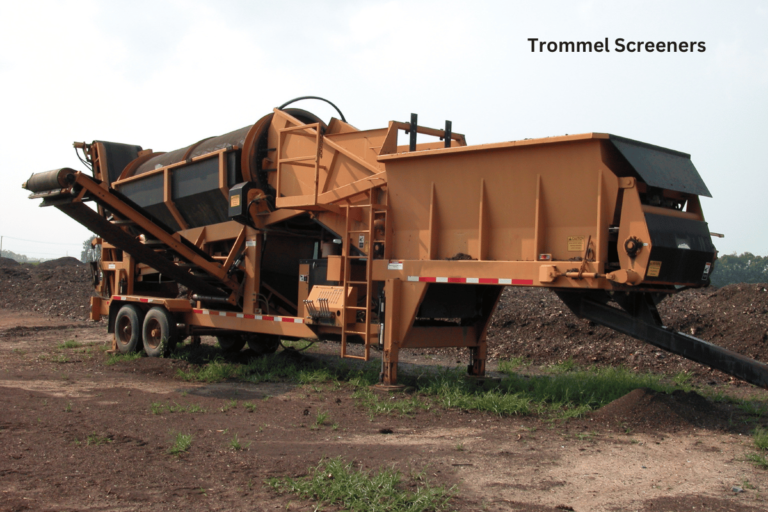The Impact of AI and Machine Learning on Construction
You may find it intriguing that AI and Machine Learning applications in construction are projected to grow by 45% annually, surpassing $2 billion by 2025. As you ponder the implications of these technologies on the industry, consider how they are reshaping project dynamics, influencing safety protocols, and redefining operational efficiency. The transformative potential of AI in construction goes beyond mere automation, paving the way for a new era of innovation and sustainability. Curious about the nuances of this evolving landscape? Let's explore together the profound impact of AI and Machine Learning on construction.
Key Takeaways
- AI optimizes resource allocation and scheduling for efficient project management.
- Predictive analytics enhance safety protocols and risk mitigation strategies.
- Automation streamlines construction processes, reducing costs and improving productivity.
- AI revolutionizes building design, enabling sustainable material selection and innovative construction methods.
- AI shapes the future of construction towards sustainability, efficiency, and technological advancement.
Enhanced Project Planning and Management
AI and machine learning technologies revolutionize project planning and management in the construction industry by optimizing resource allocation and scheduling for increased efficiency and cost-effectiveness. Through real-time monitoring and predictive analytics, these technologies enable construction project managers to make data-driven decisions promptly. By leveraging historical project data, AI algorithms can forecast potential bottlenecks, allowing for proactive adjustments to prevent delays.
Furthermore, AI facilitates performance optimization by analyzing vast amounts of information to identify patterns and trends that human analysis may overlook. This data-driven approach enhances project planning accuracy and leads to more realistic timelines and budgets. By integrating AI into project management systems, construction companies can streamline processes and allocate resources more effectively, ultimately improving project outcomes.
Improved Safety and Risk Mitigation
Enhancing safety protocols and mitigating risks are vital aspects of incorporating AI and machine learning technologies into construction operations. AI's impact on safety is significant, with predictive analytics enabling proactive identification of potential hazards. By analyzing historical data and real-time monitoring of construction sites, AI can predict safety risks before they occur, allowing for timely intervention.
Machine learning algorithms are adept at hazard detection, recognizing patterns that may lead to accidents. Through advanced image recognition and sensor technologies, AI can identify unsafe conditions and alert workers or trigger automated safety protocols.
In emergency situations, AI plays an essential role in facilitating rapid emergency response. By analyzing data from various sources, AI can provide insights to emergency responders, enabling them to make informed decisions swiftly.
Optimized Resource Allocation
To optimize resource allocation in construction, leveraging AI and machine learning technologies can revolutionize how materials and manpower are efficiently utilized throughout project phases. By utilizing these advanced technologies, construction companies can achieve significant cost savings through enhanced labor productivity and streamlined processes.
AI and machine learning algorithms can analyze historical data to predict future resource requirements accurately. This enables better planning and allocation of labor resources, making certain that the right skill sets are available when and where they're needed most.
Additionally, these technologies can optimize equipment utilization by predicting maintenance needs and usage patterns, reducing downtime and improving overall efficiency.
In terms of material sourcing, AI can analyze market trends and supplier performance data to identify the best sources for construction materials at the most competitive prices. This data-driven approach enhances decision-making processes and guarantees that projects are completed within budget constraints.
Streamlined Construction Processes
You can harness the power of AI and machine learning to streamline construction processes in several ways.
By automating tasks that were previously manual, you can greatly boost efficiency on the job site.
This automation leads to improved project timelines, as well as enhanced quality control measures throughout the construction process.
Efficiency Through Automation
The integration of AI and machine learning technologies in construction has revolutionized the industry by automating various processes, leading to significant efficiency gains through streamlined construction practices. Automation in construction has brought about a paradigm shift, enabling cost reduction and productivity enhancement like never before.
By utilizing AI algorithms and machine learning models, construction companies can optimize project planning, resource allocation, and workflow management.
Through automation, tasks that previously required substantial manual labor and time can now be accomplished swiftly and accurately. For instance, AI-powered systems can analyze vast amounts of data to predict potential issues, allowing for proactive decision-making that minimizes delays and reduces rework.
Besides, automated scheduling and monitoring tools help in tracking project progress in real-time, ensuring that timelines are met efficiently.
Improved Project Timelines
Automation in construction not only enhances efficiency but also plays a pivotal role in improving project timelines through the streamlining of construction processes. By integrating technology like AI and machine learning, the industry has seen significant advancements in project management. These advancements have resulted in substantial cost savings and increased productivity for construction projects.
Through the use of automated scheduling and resource allocation systems, tasks are completed more efficiently, reducing delays and ensuring that projects stay on track. This technology integration allows for better coordination between different teams and subcontractors, leading to smoother workflows and faster project completion.
Moreover, the reliance on automated systems lessens the burden on manual labor, freeing up the workforce to focus on more complex and skilled tasks. This shift towards a more technology-driven approach in construction not only accelerates project timelines but also promotes the need for a highly skilled workforce capable of managing and optimizing these automated systems effectively.
Enhanced Quality Control
Utilizing AI and machine learning in construction streamlines processes, leading to enhanced quality control measures throughout the project lifecycle. Real-time monitoring facilitated by these technologies allows for immediate identification of deviations from planned quality standards. By continuously analyzing data, predictive analytics can forecast potential quality issues before they escalate, enabling proactive interventions.
Defect detection is notably improved through AI-powered systems that can pinpoint anomalies in construction materials or structures with high accuracy. This proactive approach to quality assurance helps prevent rework, reducing costs and delays. AI algorithms can also learn from past projects, refining defect detection mechanisms over time to enhance overall quality control in construction projects.
Moreover, AI and machine learning enable the automation of quality control processes, freeing up human resources to focus on more intricate tasks. By integrating these technologies into quality management systems, construction firms can guarantee higher standards of quality throughout their projects, ultimately enhancing client satisfaction and reputation in the industry.
Advancements in Building Design
Incorporating AI and machine learning technologies into the field of construction has revolutionized the process of building design. The use of these innovative technologies has enabled architects and engineers to explore new possibilities and push the boundaries of traditional construction methods.
One significant area where AI and machine learning have made a notable impact is in the selection and utilization of sustainable materials. These technologies assist in analyzing vast amounts of data related to the performance, durability, and environmental impact of various materials. By leveraging AI algorithms, professionals can now make informed decisions about incorporating sustainable materials into building designs. This not only enhances the eco-friendliness of structures but also contributes to creating more energy-efficient and environmentally conscious buildings.
Moreover, AI and machine learning algorithms help optimize building designs for efficiency and functionality. By simulating different scenarios and evaluating numerous design options, these technologies streamline the process, leading to more cost-effective and innovative architectural solutions.
The integration of sustainable materials and innovative technologies in building design showcases how AI and machine learning are shaping the future of construction towards a more sustainable and technologically advanced industry.
Future Trends and Challenges
Embracing emerging technologies and adapting to shifting industry dynamics will be pivotal in maneuvering the future trends and challenges in the construction sector. As AI and machine learning continue to reshape the industry landscape, several key factors will shape the future trajectory:
- Workforce Adaptation: The construction workforce will need to upskill and reskill to leverage AI and machine learning effectively.
- Regulatory Compliance: Stricter regulations and standards will require construction companies to stay abreast of evolving compliance requirements.
- Data Security: With the increased use of technology comes the need for robust data security measures to protect sensitive information.
- Ethical Considerations: As AI becomes more prevalent in construction decision-making, ethical guidelines and considerations will be paramount.
- Sustainability Integration: Incorporating AI and machine learning to enhance sustainability practices will be essential for the construction industry's future viability.
Navigating these challenges will require a proactive approach from industry stakeholders to ensure a successful shift into a tech-driven construction environment.
Conclusion
To sum up, AI and Machine Learning are the dynamic duo transforming the construction industry into a well-oiled machine.
Just like a symphony conductor orchestrating a flawless performance, these technologies harmonize project planning, safety measures, resource allocation, construction processes, and building design with precision and efficiency.
As we look towards the future, embracing these innovations will be essential for staying ahead of the curve in the ever-evolving landscape of construction.







